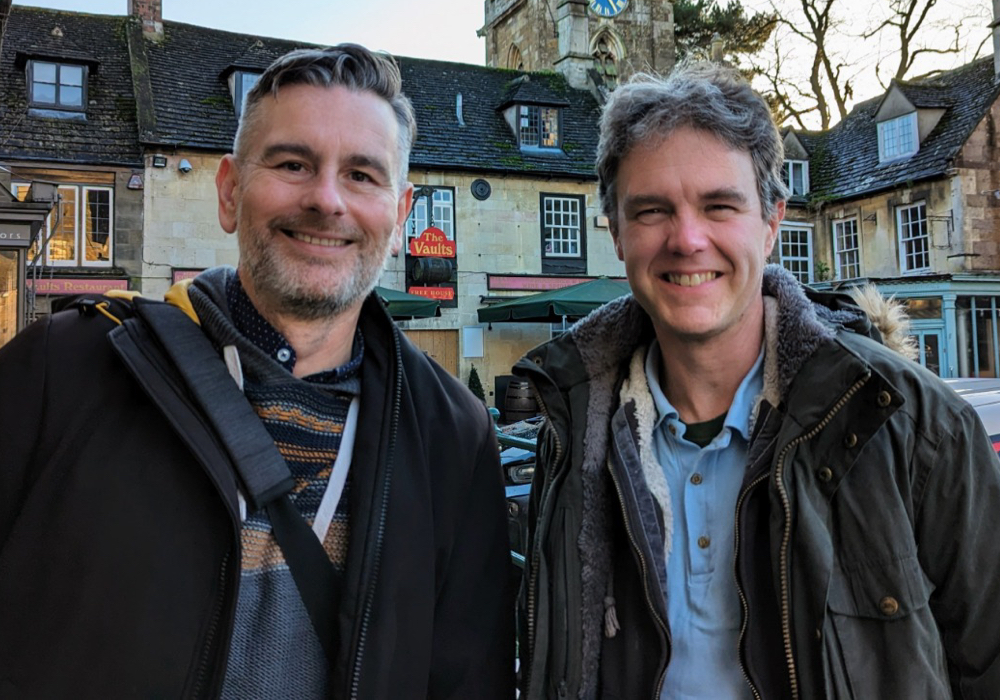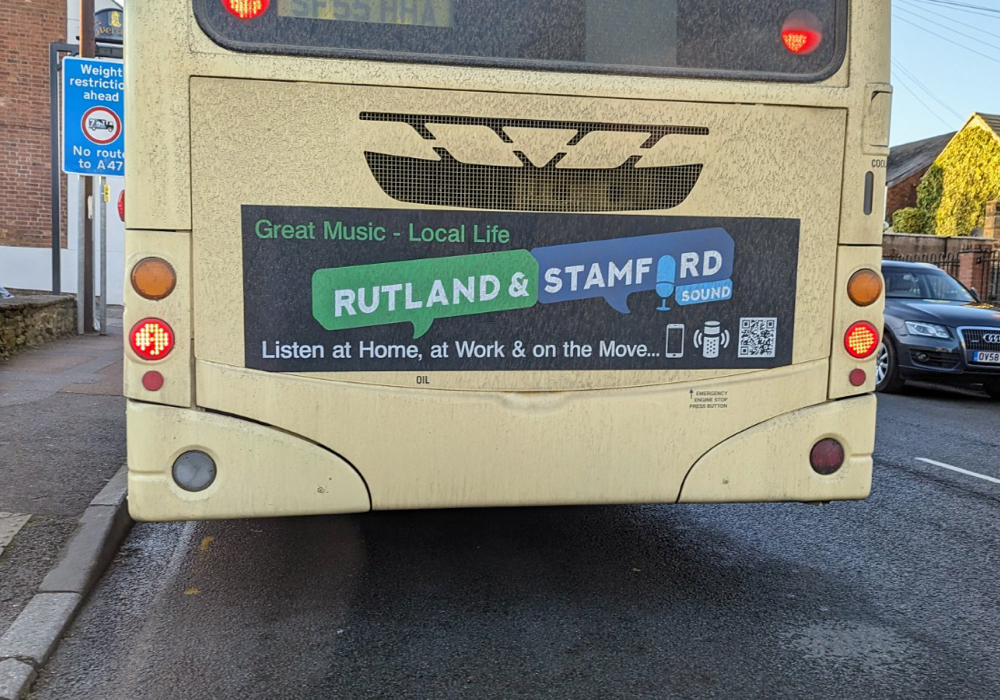Digital First – How Rob Persani superserves Rutland’s online listeners

Keri Jones takes a listen to the online-only radio station Rutland and Stamford Sound.
Listening, you’d think it was a fully-fledged and established FM broadcaster. Bauer closed the Oakham-based Rutland Radio FM station during the Greatest Hits Radio rollout.
Rutland and Stamford Sound Founder Rob Persani says he recognises the names of listeners who have moved over from his former employer, Rutland Radio.
And Rob’s respectable online audience figures are growing. The station says it reaches around 60,000 people per quarter. Bus back advertising and events attendance helps. But some would-be Rutland and Stamford Sound listeners approach Rob when he’s interviewing and shrug their shoulders when he tells them that his FM campaign has been unsuccessful, so far. Persani perseveres!
Rob has been greatly supported by his MP in campaigning for use of the 104 FM frequency, ring-fenced for BBC use in Rutland but never used. Coverage of affairs for Britain’s smallest unitary council on BBC Radio Leicester is infrequent. Rutland is peripheral and, like all BBC locals, their output has been decimated by the ill-considered policy to axe knowledgeable and experienced broadcasters for a more generic multi-county service in the afternoon and all weekend.
It’s that 25 years of local knowledge and a strong sense of place I got from Rob’s breakfast show. Rob brought service elements like the roadworks list to life, describing the location of traffic lights using names of landmarks and remarking on how long the ironwork in the roadway had been ‘raised.’ Listeners would be in no doubt that Rutland is Rob’s home.

Interviewing a Rutland local who was arranging a fundraiser in a nearby city, Rob clearly felt he should contextualise the location.
“Remember, Peterborough Cathedral is Rutland’s Cathedral,” Rob added. In fact every link was peppered with the local observations and understanding that A.I. radio bots won’t generate or share. Because these experiences aren’t available to trawl online.
In referring to the Coca Cola ‘holidays are coming truck’, Rob recalled, “do you remember when it came to Morrisons in Stamford?”
It’s much more than jocking. During the three hours I listened, I heard more local content than on recent monitoring of BBC locals.
An interview with an octogenarian food waste campaigner on his insurance challenges and interview clips from a police public meeting the night before. There were interviews with local newsmakers, event organisers. Lots of clips of local voices.
It’s good stuff and unique content for a distinct community so proud, residents voted to reinstate their former county, in the full knowledge that small means big council tax bills.
Rob’s not alone. There are a handful of online-only services ‘washing their faces’ financially. Rob has sustained himself as a single employee since the station launched. Pure West does a similarly great job of super-serving Pembrokeshire and has proved viable. I heard that the brilliant Banbury Sound is also in the black.
Whilst Banbury and Pure West are planning small-scale DAB, the rolling hills of Stamford and Rutland might mean the low power of SSDAB is unsatisfactory. So that leaves online.
For some punters, online listening is still fiddly and a faff, but the world is changing fast as smart speaker usage climbs. One year ago, a radio executive estimated five years of life was left in local FM. This summer, I was told ‘It’s more like three years.’
I hope for Rob and other talented practitioners with vision and focus, the tech take-up by the public continues at pace. Because Rob says his role is ‘relentless’. I’d argue he needs a cheap, easy platform and one without the non-empathetic regulation currently demotivating some community radio operators.
A punter wouldn’t differentiate between the BBC local and Rutland and Stamford Sound in terms of tech quality and professional presentation. It has the texture of a better-resourced service. Content is collected at meetings, events, and on the street. There’s no studio. Links are presented from Rob’s spare bedroom in Oakham. It’s more broadcasting-from-my-house than Broadcasting House.
But for localness and relevance, Rob has the edge. Contacts, context, and community connections make compelling content. And if you are offering a service people want, many will make the switch.
As we ate lunch Rob pointed out the local shops that stream the service. After our chat, I wonder whether this hyper-local sole staffer-driven service, offering unique coverage in Britain’s radio deserts is the future.
I’d argue this is truly digital-first!
Keri Jones runs Alfred – community radio and daily podcast in Shaftesbury and posts his radio thoughts @kerijonesradio.
